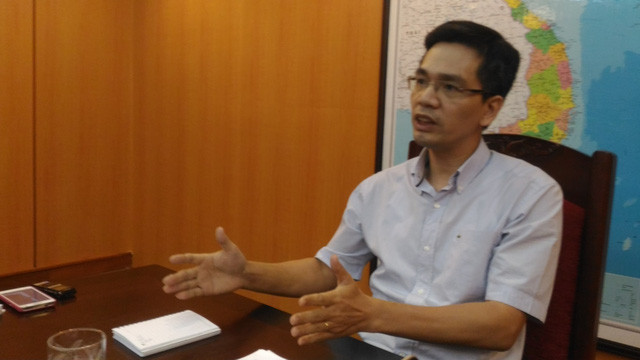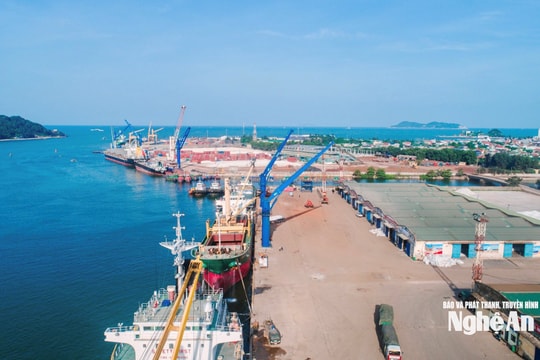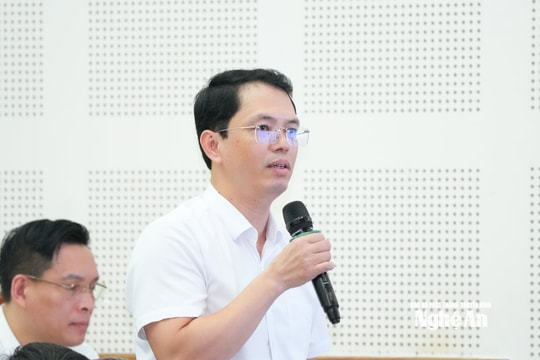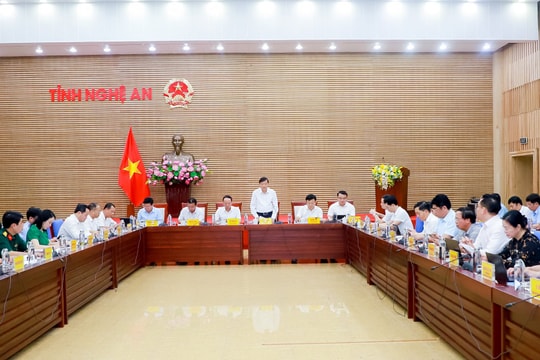In 2017, no money was given to buy public cars for Deputy Ministers and below.
The Ministry of Finance has just submitted to the National Assembly the state budget financial report for the 5 years 2016-2020 and the state budget estimate for 2017. Responding to the press after the National Assembly meeting yesterday (October 27), Mr. Vo Thanh Hung, Director of the State Budget Department, Ministry of Finance said that the Ministry of Finance will tighten budget spending discipline in 2017 as well as the medium-term financial plan for the next 5 years.
 |
| Mr. Vo Thanh Hung: "Tighten budget revenue and expenditure discipline in 2017". |
Since 2015, the central state budget revenue has been short by thousands of billions of dong compared to the estimate. This year, there is a possibility of the same. Why is this happening and what is the Ministry of Finance's solution, sir?
- Indeed, the annual budget revenue still exceeds the estimate, but the central budget revenue is more difficult. The central budget revenue has 3 components (crude oil, export-import balance, domestic revenue), these sources tend to decrease and decrease very quickly. From 2006-2010, the proportion of these 2 revenue sources accounted for 40% of the total budget revenue, but by 2015 it was below 25% (less than 1/4 of the total budget). By 2020, it is expected to be only about 14-15% of the total revenue.
The reason for the rapid decrease is that the collection rate has not increased rapidly, but the revenue from crude oil has decreased due to both a decrease in output and a decrease in price. As for the revenue from import and export, it will come to be mainly collected from VAT and special consumption. The third largest source of revenue is the regulation of localities to the Central Government, increasing according to the growth rate of the domestic revenue budget in general.
What do you find most difficult about balancing next year's budget?
- It is still difficult to balance the central budget. Actually, every year is difficult. The most difficult thing is how to distribute the money in a harmonious way. But 2017 is a really stressful year because in the coming time, we cannot let the deficit increase any more. According to the National Assembly Resolution, the deficit must not exceed 4% of GDP but the public debt ceiling is 65%, like in 2017, the Government submitted to the National Assembly the deficit was only 3.5% of GDP.
According to the Ministry of Finance, what should the Government and ministries and branches do to make that happen?
- We must improve the investment environment and develop businesses because in the end, this is still the most fundamental long-term solution. Currently, there are 500-600 thousand businesses, but we are striving for 1-2 million businesses. This will still be the largest resource that the State has from taxes and fees.
On the side of the Ministry of Finance, we will study, propose and implement tax policy adjustments: Review reasonable taxes, direct and indirect taxes (VAT, special consumption tax) in the direction of expanding the taxable subjects. Tax obligations on each item do not increase but the taxable subjects are expanded and we must also start building research on property tax collection.
At the same time, the financial sector must also strengthen effective tax collection management, avoid tax losses, and reduce tax arrears. The Ministry of Finance's goal is to reduce tax arrears to less than 5% of total budget revenue. We still remember that in 2008-2011, businesses weakened significantly and tax arrears were very large. Currently, the Ministry of Finance is reviewing to compile a report to the National Assembly to allow the cancellation of part of the tax arrears of businesses that are only on the books and cannot be collected in reality.
Will there be any stronger adjustments to the budget next year, sir?
- In 2017, we must also restructure in the direction of gradually increasing development expenditure. In 2017, the development expenditure is estimated to be 27% of the total state budget. We will continue to adjust salaries, allowances for meritorious people, pensioners, and civil servants; require public service units to increase autonomy (adjust public service fees according to the roadmap). For ministries and branches: reduce expenditure by about 1,000 billion (including health, education, and training).
This saved budget is for restructuring, instead of directly supporting public service units, this budget is for policy beneficiaries and reinvested in these areas and units. When hospitals increase fees, patients demand an increase in quality and investment in equipment.
Everyone can see that waste in budget spending, especially regular spending in many sectors and localities, is still large. In 2017, will there be any fundamental solutions to overcome this situation?
- The Government continues to require Ministries and sectors to promote savings in regular expenditures. This year, although the salary adjustment was required from July 1, the Ministries have made their own arrangements according to the assigned budget. This is the second consecutive year that Ministries have had to make their own arrangements to adjust salaries. The salary fund has increased but has not been supplemented and has had to save other sources to ensure that their salary fund increases.
Regarding public vehicles, some localities also consider allocating public vehicles, but in reality, only the Ministry of Finance does so. In the budget arrangement, this year and next year (2017), the Ministry of Finance does not allocate money for ministries to buy vehicles for Deputy Ministers and below.
When rearranging, there will be excess vehicles and they will be transferred. If the Ministries have not yet allocated, they will arrange the transfer themselves.
According to Dan Tri

.png)

.jpg)

.jpg)


